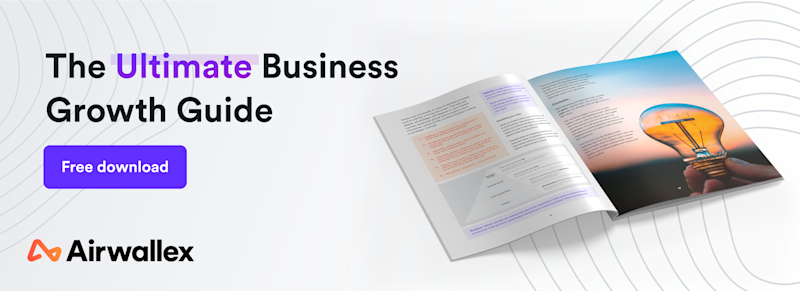Follow the Money: How to Develop Cashflow Confidence with Naomi Simson

Time is money, right? Or is it money is time?
If you think of a business as a living organism, cash is the lifeblood of the business. One of the main reasons businesses fail is not that they don't record a profit; they run out of cash. Running out of money is the quickest pathway to closing down a business. In the present circumstances, you may feel that your business is on life support. For others, it is the perfect environment for business to boom. Either way, it's essential to know where your cash is and monitor your business's health and wealth.

What is cash flow?
Skilling yourselves: Understanding cash flow
Cash flow is how money travels through a business. It's not just the destination; it's the journey. Often, we can think of cash flow as money in, money out. However, cash can have many destinations, pit stops, and detours. Knowing exactly where your money is and where it is not is important for any business owner or business leader. So important, it is one of Naomi's top priorities for business owners.
"Don't be afraid to talk about money. Money's okay." – Naomi Simson.
Your big vision, your ability to change the world, to employ people, to contribute a sense of purpose in people's lives - all that requires money. It is not enough to say, "oh, my accountant does it." Naomi encourages business leaders to take advantage of the myriad of courses available for individuals to skill themselves up and become cash flow confident.
Where is the money?
As you operate your business, cash flow is where the money goes to pay suppliers or pay for the value-added processes. In essence, it's the working capital required to make your business tick along. Particularly as global supply chains have, and are, being significantly disrupted, if you don't have a handle on where your cash is, then there's a genuine risk of running out of money to pay the bills. Not only have a baseline aim to be profitable but also to be cash flow positive.
Terms of supply
Some industries have more money detours or pit stops than others. Some industries are at greater risk of money detours or pit stops. For example, suppose you're a product or manufacturing-based business, and you need to buy components in advance. In that case, the terms of your supply are going to affect your cash flow significantly.
The terms of supply are the terms and conditions of any supply agreement. For example, if you're buying components offshore, you could have terms of supply which mean you pay 50% at the placement of the order and then another 50% when those components exit the country. That means 100% of your cash is held up in stock or components – even before you get to see it!

Counting every dollar
Considering alternative business models
Knowing and negotiating your terms of supply is a critical aspect of becoming more cash flow confident and working out what works for your business. If you're a contract or micro-enterprise, could you request partial payment upfront? Or have payment in advance? Each business is going to have a different model that works for it. Seek expert advice. A key to becoming cash flow confident is to know the difference between what working capital you have and investment capital.
Working capital vs. investing capital
Working capital is the difference between your business's current assets and current liabilities. It's a "spot-check" at where your business is in terms of cash availability at any point in time. Investment, or investing capital, is the money the business can use to achieve its objectives. The investment can sometimes be in tangible elements, like specialised machinery, or it can be in intangible things, like an investment into a new automated process.
The longer you can have that cash in your pocket (or bank), the longer you have an asset that you can use to invest in your growth. The key is to prioritise cash flow in your thinking. Until the money is physically in the bank, it's not a sale.

Knowing your margins
"Every dollar counts. Every single dollar. (When I started) I didn't realise the impact of just a few points of margin. Let's say you're turning over $10,000, and you're giving up 1 per cent. You think, 'Oh, okay, it's not so much.' But when you're turning over 100 million, 1 per cent is a lot of money." – Naomi Simson
Getting the fundamentals right in your business (like negotiating terms of supply, mapping out your money journey) will reap enormous benefits for your business as you scale.
There is also an extra layer of complexity when you're scaling globally. Aside from navigating the constantly changing landscape of global supply chains, there is a "doubly whammy" of navigating foreign exchange rates and operating in multiple currencies. With banks charging high fees, you can lose any margin you would have made in currency exchange fees.
One option is to constantly monitor the foreign exchange and hope for the best. Another easier option is to hold your cash in the currencies you need to pay your suppliers. This is what you can do with Airwallex.
Making money work for you
Breathe. Finding your bandwidth
Sometimes our most precious resource, time, can operate like the difference between working capital vs. investment capital. In this case, every minute counts. You have probably heard of the adage, "work on the business, not 'in' it." But what should you do when you find yourself on the treadmill?
"I often say, you know, who owns your business? Do you own the business or does it own you? And if it owns you, it's really time to have a talk to yourself." – Naomi Simson
In a previous article, leading leaders, we looked at what it takes to identify your unique leadership contribution. What can you contribute to your business that technology, other people, or further investment cannot match? Is it your creative thinking, your storytelling and vision casting? This is what you need to be focusing on. Regardless of the pace of change, navigating any kind of adjustment will come with a decision point. This is the moment where you need to start letting go of control and start delegating or outsourcing.
Reflection: A great question to reflect on and ask yourself is, "What do I love in my business? What do I loathe? Can this be outsourced?"

Outsourcing 101
Knowing what you love and what you loathe in your business is a great first step to prioritising where your cash goes. Directing your cash to be where it needs to be and protecting it from sitting in someone else's bank account (if it doesn't need to be there) can indirectly free up your time, energy and resources.
Before investing in an asset (or person, or system), consider whether it will save you the time, energy or money so that you can be freed up a little more to focus on the best value that you can deliver to the business. After all, we only have 24 hours in a day. Below is a flowchart to help you consider whether you should outsource or not.

Finding your tribe
If you find yourself on the treadmill, perhaps you need some objective insight or talk with other business owners. Finding your tribe who will be your biggest supporters and harshest critics is a solid foundation for developing cash flow confidence.

Final thoughts
Becoming cash flow confident requires (1) understanding cash flow; (2) knowing where your cash is; (3) channelling the cash appropriately to extract the best value.
By channelling your cash into operations or investment, you can choose who and what time to make available. These choices enable you to outsource the elements of your business that you loathe and assist you to focus on the ones you love where time is money and money is time.
Posted in:
Airwallex news

